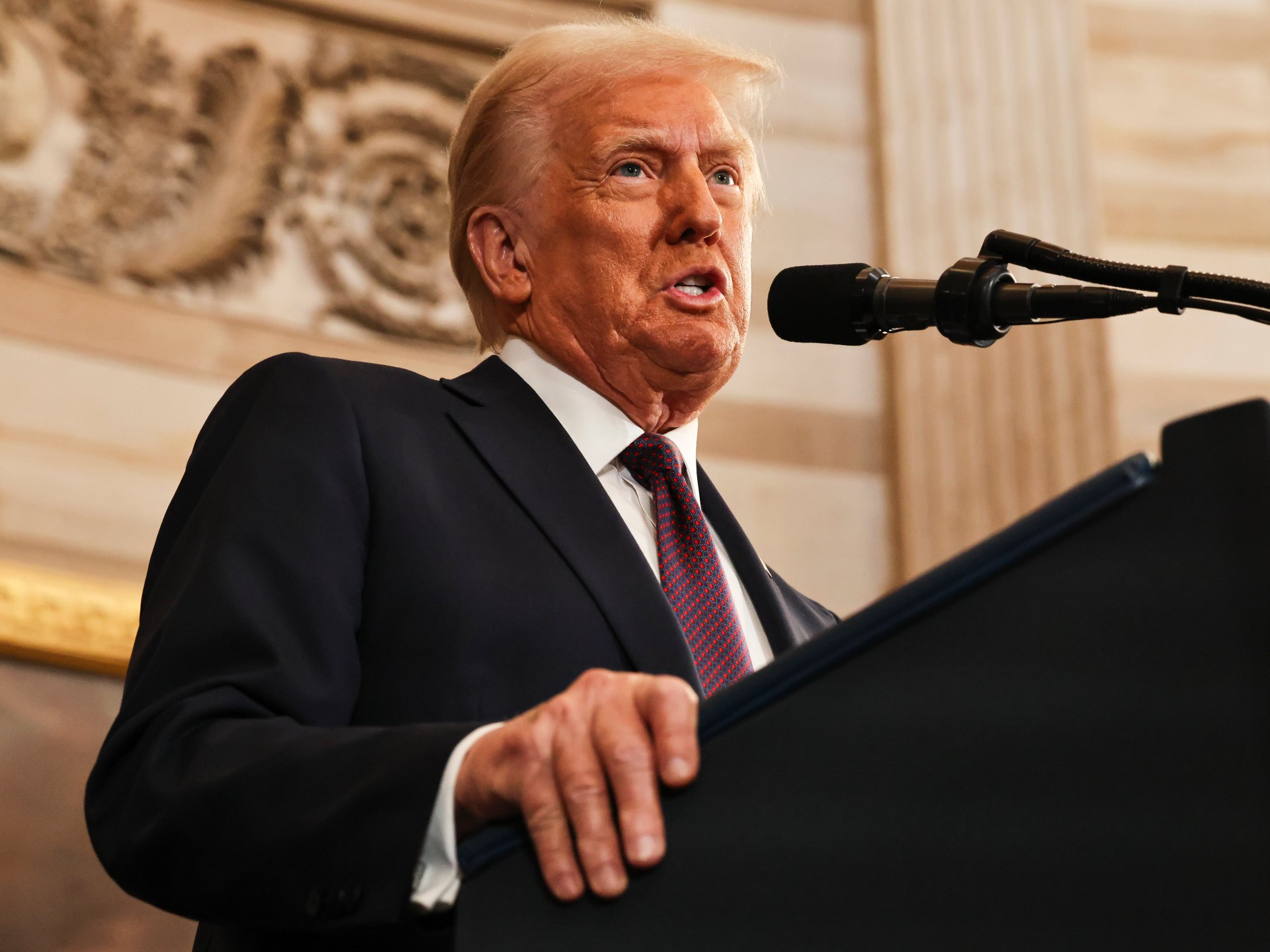Donald Trump has held off on tariffs during his first day as the president of the United States and is placing a big bet that his executive actions can cut energy prices and tame inflation. But it’s unclear whether his orders will be enough to move the US economy as he promises.
As a candidate, Trump had promised to levy 10 to 20 percent tariffs on all imports and up to 60 percent on imports from China. He had also threatened to impose 25 percent on imports from Canada and Mexico if they fail to clamp down on the flow of illicit drugs and migrants entering the US illegally.
Those threats did not materialise on Monday, Day 1 of his taking office, but that doesn’t mean they’ve gone away, experts warned.
Trump announced the creation of an External Revenue Service “to collect all tariffs, fees and revenues. It will be a substantial sum of money from foreign sources,” he said in his inaugural speech.
“He chose not to do a kneejerk tariff move today that could then be negotiated away, but the Trump administration and Republican Party goals for tariff revenues suggest that the tariff threat is still out there,” Rachel Ziemba, an economic and political risk expert, told Al Jazeera.
While Trump is set to sign an executive order to prioritise reviewing trade relationships – including setting in motion a US-Mexico-Canada trade agreement review – that lack of tariffs on Monday “suggests to me that some of his team [including Treasury Secretary pick Scott Bessent] and congressional advisers may have succeeded in getting him to phase in tariffs and consider strategy rather than to announce them and negotiate them away,” Ziemba said.
On China, the Trump team is expected to focus on a 2020 deal from Trump’s previous term as president under which Beijing was supposed to buy significant volumes of US resources to bridge the trade deficit between the two countries, a promise that it failed to deliver on.
“A focus now on such purchases both buys time before more aggressive tariffs and suggests the US might be open to such purchases and investment targets,” Ziemba said.
This not only arms Trump with more future negotiating leverage but also takes in concerns about market pressure and worries that a quick imposition of broad tariffs would be inflationary, undermine US economic interests and undermine longer-term tariff revenues, Ziemba added.
‘Drill, baby, drill’
Increasing US oil and natural gas production was another big theme on Monday with Trump saying he intends to declare a national energy emergency.
“America will be a manufacturing nation once again, and we have something that no other manufacturing nation will ever have, the largest amount of oil and gas of any country on Earth, and we are going to use it,” Trump said in his inauguration speech at the US Capitol. “We will drill, baby, drill. ”
Former President Joe Biden came into the White House in 2021 promising to wean the US off fossil fuels, but US oil and gas production hit record levels under his watch as drillers chased high prices in the wake of sanctions on Russia after its 2022 invasion of Ukraine.
Trump also said the US would “fill our strategic reserves up again, right to the top” and export energy all over the world. Biden had sold a record amount of crude oil from the US Strategic Petroleum Reserve (SPR) at more than 180 million barrels. The sale helped keep petrol prices in check after Russia started its war on Ukraine but sank the SPR to the lowest level in 40 years.
Trump had pledged in his first administration to fill the SPR in an effort to help domestic oil companies suffering from low demand during the height of the pandemic. The promise was not fulfilled.
Trump also said on Monday that the US would revoke what he called an electric vehicle (EV) mandate, saying it would save the US auto industry.
While there is no mandate from Biden to force the purchase of electric vehicles, his policies have sought to encourage Americans to buy EVs and auto companies to shift from petrol-powered vehicles to electric cars.
“The common theme is really unleashing affordable and reliable American energy,” an unnamed Trump official was quoted as saying by the Reuters news agency. “Because energy permeates every single part of our economy, it’s also key to restoring our national security and exerting American energy dominance around the world. ”
Trump has said the US is in an artificial-intelligence arms race with China and other countries, making the industry’s voracious power needs a national priority.
US data centre power demand could nearly triple in the next three years and consume as much as 12 percent of the country’s electricity on demand from artificial intelligence and other technologies, the Department of Energy projected.
The first Trump administration had considered using emergency powers under the Federal Power Act to try to carry out a pledge to rescue the coal industry but never followed through.
This time, Trump could use emergency powers to ease environmental restrictions on power plants, speed up construction of new plants, ease permitting for transmission projects or open up federal land for new data centres.

Leave a Reply